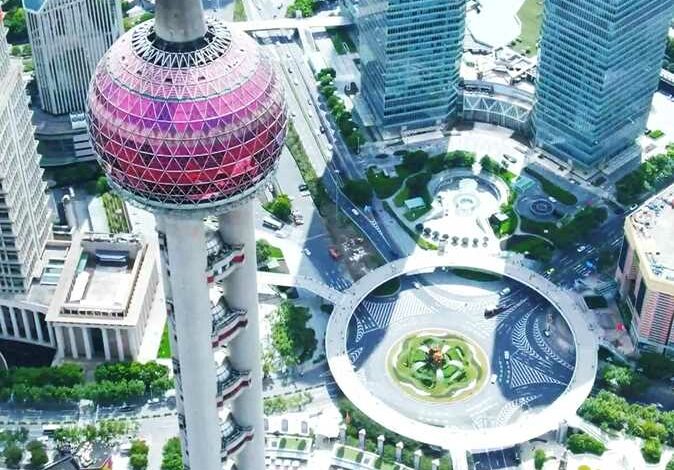
By Charles Muchoki | Africa Guardian
As the 2024 Summit of the Forum on China-Africa Cooperation (FOCAC) approaches, Beijing prepares to host a crucial gathering from September 4 to 6 that could mark a new chapter in Sino-African relations. This summit is not just another diplomatic meeting; it represents China’s commitment to fostering long-term partnerships with Africa aimed at promoting shared prosperity and addressing global challenges.
For many African observers, the summit is seen as a vital opportunity to address significant issues, such as the continent’s annual infrastructure funding gap, which the African Development Bank estimates at $130 billion to $170 billion. As Africa’s largest trading partner, China views this collaboration as essential not only for mutual economic benefits but also for advancing sustainable development across the globe. This approach aligns with China’s broader geopolitical ambitions and could signal a new era of cooperation that enhances China’s strategic position on the global stage.
The 2024 FOCAC summit is expected to focus on key areas of cooperation, including education, infrastructure, healthcare, and technology—sectors where joint efforts can drive growth and innovation. African nations are eagerly anticipating concrete commitments and actionable plans that will translate into real progress, potentially shaping the trajectory of Sino-African relations for years to come.
A Historic Partnership
Established in 2000, FOCAC has become the cornerstone of the China-Africa relationship, emphasizing practical, results-driven collaboration. For China, FOCAC is more than a diplomatic initiative; it’s a strategic alliance reflecting a mutual aspiration for progress. Over the past two decades, this platform has facilitated numerous development projects across Africa, underscoring China’s commitment to sustainable growth through infrastructure development, human resource training, and governance exchanges.
China’s developmental journey, characterized by innovation and reform over the past 70 years, has increasingly resonated with Global South countries as a potential model for their own growth. FOCAC embodies China’s foreign policy objectives of building stronger ties with these nations, transforming traditional diplomatic rhetoric into tangible benefits. Between 2000 and 2023, Chinese lenders provided 1,306 loans worth $182.28 billion to 49 African governments and seven regional entities. In 2023, Chinese lending saw a resurgence with $4.61 billion in new commitments across eight countries and two regional institutions, signaling a cautious revival in investment.
Reinforcing Strategic Ties
In his 2021 address at FOCAC in Dakar, President Xi Jinping outlined a bold vision for future China-Africa relations, focusing on economic cooperation tailored to the evolving global economy. Central to this vision is the “China and Africa Vision 2035,” a strategic framework aimed at deepening bilateral cooperation in critical areas like health, poverty alleviation, agriculture, trade, digital innovation, green development, capacity building, cultural exchanges, and peace and security. The plan highlights China’s commitment to a mutually beneficial partnership while navigating global economic shifts and promoting sustainable development.
Since the launch of the Belt and Road Initiative (BRI) in 2013, Africa has significantly benefited from Chinese investments, particularly in infrastructure development. Over the past decade, China has financed the construction of over 6,000 km of railways, 6,000 km of roads, and nearly 20 ports across Africa. Major projects like Kenya’s Standard Gauge Railway and the Addis Ababa-Djibouti Railway have enhanced regional connectivity and economic potential, positioning Africa for sustained growth.
Challenges and Opportunities
As the 2024 FOCAC summit approaches, African leaders will reflect on the partnership’s future trajectory. FOCAC has consistently delivered substantial financial commitments, including a $40 billion pledge at the 2021 summit to support infrastructure, agriculture, and manufacturing. However, this year’s summit takes place in a complex global landscape, with growing resistance to China from a U.S.-led coalition and challenges in integrating large-scale Chinese energy projects into diverse African markets.
Despite these challenges, China’s investments have significantly impacted Africa’s energy sector, installing over 25 GW of generation capacity—more than 15% of sub-Saharan Africa’s total. This performance underscores the importance of integrating Chinese projects into Africa’s development plans, highlighting both opportunities and complexities.
A Broader Geopolitical Strategy
Africa’s economic value and geopolitical significance are rapidly increasing in China’s global strategy. Strengthening economic ties with Africa allows Beijing to secure vital support in international forums, enhancing its ability to influence global diplomacy and security. As China seeks to reshape a world order it views as biased, the 2024 FOCAC summit, themed “Joining Hands to Advance Modernization and Build a High-Level China-Africa Community with a Shared Future,” is poised to deepen these connections.
If effectively executed, this summit could pave the way for a sustainable and mutually beneficial partnership, reinforcing China’s strategic position globally. The future of Sino-African relations will depend on the outcomes of this gathering, which could define their partnership for decades to come.
___
